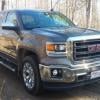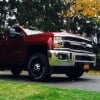-
Similar Content
-
- 4 replies
- 1,844 views
-
- 4 replies
- 1,490 views
-
- 13 replies
- 2,967 views
-
Intermittent Issue: Cannot reply to posts. Cannot even enter text in the body of this message. Tried multiple browsers, logged out, nothing works.
By Chevrolet1,
- 0 replies
- 1,100 views
-
- 3 replies
- 1,859 views
-
-
Recently Browsing 0 members
- No registered users viewing this page.
-
Forum Statistics
246k
Total Topics2.6m
Total Posts -
Member Statistics
-
Who's Online 20 Members, 1 Anonymous, 1,769 Guests (See full list)














Recommended Posts
Join the conversation
You can post now and register later. If you have an account, sign in now to post with your account.